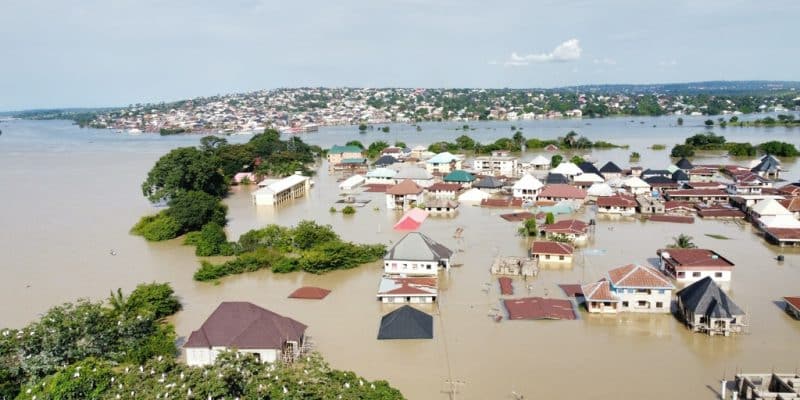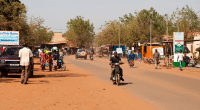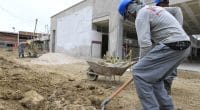Between building dykes, raising awareness and evacuating populations, the National Response Plan being prepared by the Nigerian government should make it possible to deal more effectively with the risk of flooding.
The Nigerian authorities are fed up with flooding and, above all, the consequences. In 2022 alone, the phenomenon killed 600 people and destroyed several infrastructures (water points, schools, bridges, etc.). In the state of Katsina, 437 kilometres from the capital Abuja, at least 200 houses were devastated by the downpours of July 2023. Now is the time for solutions.
The National Emergency Management Agency (NEMA) recently announced that it was going to activate a National Response Plan to deal with the risk of flooding in several cities during the rainy season. As part of this plan, 14 states, including Kaduna, Adamawa and Plateau, have been placed on alert to prevent economic and environmental damage.
Power lines and trees are often cut down by the gusts, while livestock are swept away by the waters during these episodes attributed to climate change. But the West African country is also keen to preserve its image as an economic and military power in the region. To this end, Nema has also mobilised the Nigerian air force to raise awareness among the populations most at risk, but above all to rescue them in the event of flooding. This makes sense, given the weather forecasts and the haphazard building practices that obstruct rainwater drainage.
Concrete, resilient solutions
“We are going to invest in infrastructure capable of withstanding natural disasters, such as flood barriers, reinforced buildings and drainage systems. This may be costly, but it can save lives and prevent long-term damage. Secondly, we are going to educate the community more about emergency preparedness. This includes teaching people how to evacuate safely, how to store supplies and how to communicate with each other during a crisis”, explains Mustapha Habib Ahmed, the Director General of Nema, based in Lagos.
Read also-NIGERIA: New trucks to improve sanitation in Lagos
In Nigeria’s largest metropolis, where the 21 million inhabitants are regularly affected by the annual cycle of floods, a pumping station has just been built. Equipped with a reservoir, this facility will enable economic operators and households, particularly in the low-lying shanty town of Makoko, to pump large volumes of water in response to rising sea levels.
Benoit-Ivan Wansi







